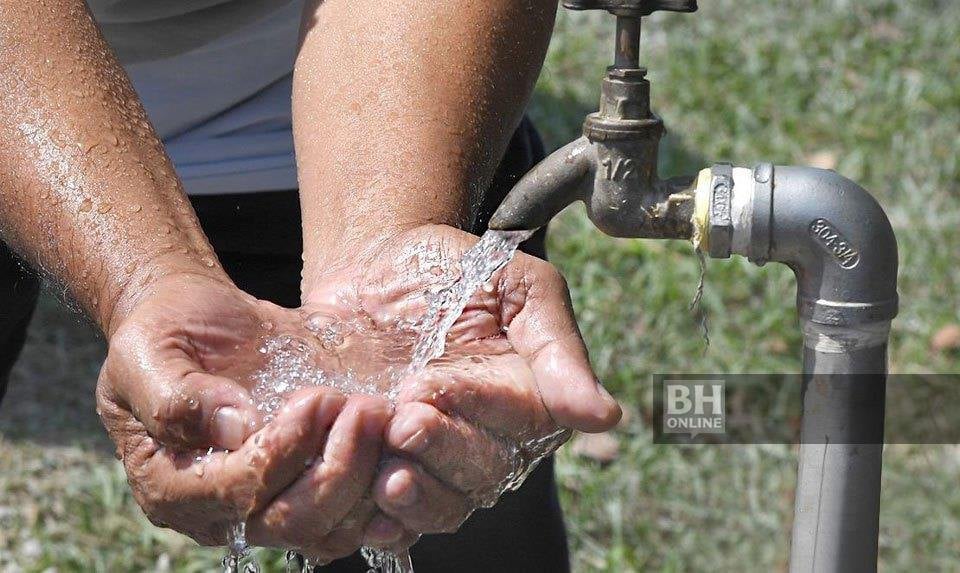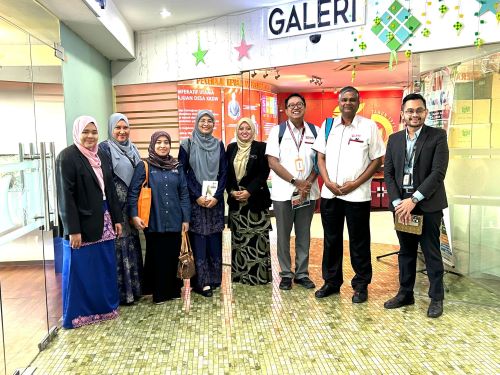Prepare a Comprehensive action plan to eliminate 'water poverty'
From Prof Madya Dr Haliza Abdul Rahman - August 28, 2023 @ 10:05am

There is no denying that the safety and cleanliness of water in this country has improved since independence, but we cannot deny that holistic efforts are still needed to ensure access to clean water is comprehensive, that is, it can be achieved by all levels of society regardless of economic status, political beliefs and location.
There are some segments of the community that still find it difficult to obtain facilities and access to clean water, for example, the Orang Asli due to their settlement far outside the city, so they rely heavily on nearby water sources such as rivers, ponds and wells for daily use and drinking or cooking.
However, water used for so long may never be cleaned or treated due to the risk of pollution problems that can cause physical and mental health problems for the community concerned.
Cholera for example is an acute infectious disease causing severe diarrhea due to food or water contaminated with vibrio cholerae bacteria which can cause death due to severe dehydration.
The fact is, clean water is still considered 'a luxury' for some people, including the Orang Asli. Rural communities in certain areas may not always get clean resources due to various factors such as pollution and lack of facilities to obtain clean and maintained supplies.
A total of 300 residents in FELDA Panching Utara near Kuantan, for example, were reported to be facing problems with clean water since a year ago.
In this country, the water crisis is contributed by the lack of raw water, the drop in groundwater levels and the intrusion of sea water into raw water areas due to excessive groundwater extraction.
Other factors are the increase in population, drought, lack of awareness of water conservation and the attitude of industry players to look down on the issue of river pollution.
Kelantan has the least access to clean water
As of 2020, the National Water Services Commission (SPAN) reported that 96.9 percent of the people in the Peninsula and Labuan have access to clean and treated water, while of that number, only 71.7 percent of Kelantan's 1.7 million residents have access to clean and quality water supply, thus making the state that has the lowest percentage to clean water access.
These statistics and facts are of course very ironic because in the run-up to the 66th anniversary of the country's independence, all individuals in all walks of life have the right to access clean water consistently without compromise.
According to an economist from the Malaysian Academy of Sciences, Prof Datuk Dr Medaline Berma, for a long time the country has been measuring poverty by using the income line, regardless of access to clean water.
In reality, the World Bank states that a person is in water poverty when a household is not supplied with a clean source in the appropriate amount and is not supplied with treated water or a proper water drainage system.
The downstream impact is if the problem of basic needs such as water cannot be overcome, among which it is difficult to attract investors (local and from outside) due to the lack of complete infrastructure. In addition, the target of balanced development as desired in the MADANI Economic Plan to bridge the development gap between industrialized states and backward states is also difficult to achieve.
The Civil Economy Policy Plan by the recent Unity Government wants, among other things, to achieve balanced development, which is to bridge the development gap between industrialized states and backward states from the aspect of economic development, including the aspect of clean and quality water.
In addition, since 98 percent of the country's fresh water supply comes from rivers, the status and quality of river water needs to be emphasized so that it is always in a good and sustainable condition.
River water quality and water supply crisis are usually related to each other because affected and polluted rivers in large quantities will cause the water treatment plant (LRA) to stop operations temporarily and this is when the water supply crisis occurs.
When the pollution occurs, the supply to thousands or even millions of consumers is affected as often happens in the Klang Valley. The work of changing dilapidated pipelines also needs to be improved.
Attention needs to be given in educating the community continuously to avoid water wastage because the average daily per capita water consumption by the people in this country is high, that is, an average of 201 liters of water per person per day compared to 165 liters as recommended by the United Nations (UN).
Stakeholders are also urged to conduct a study to prepare a more comprehensive action plan on how to improve quality water supply for the long term.
Thus, ahead of this independence anniversary, the main thrust is to significantly improve water use efficiency across all sectors and ensure sustainable freshwater production and supply to address water shortages.
It also needs to be targeted to significantly reduce the number of people experiencing water shortage issues because the resource is the basis of life, including supporting and strengthening the participation of local communities in improving water management and sanitation.
The author is an Associate Professor in the Department of Environmental & Occupational Health, Faculty of Medicine and Health Sciences and Institute of Social Science Studies, Universiti Putra Malaysia (UPM).
Date of Input: 28/08/2023 |
Updated: 28/08/2023 | zulshafiq
MEDIA SHARING






























